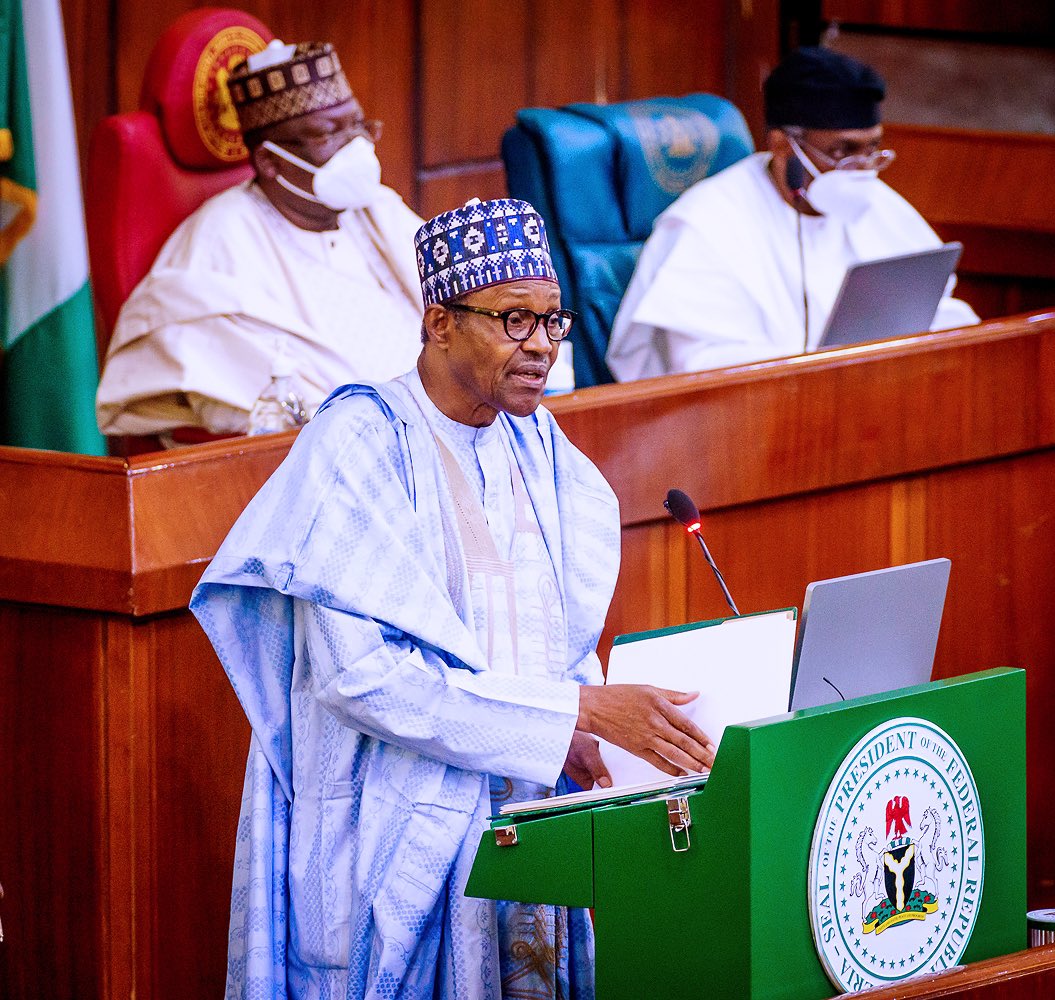Nigeria News
Buhari Rejects Bill Seeking To Regulate Ecological Fund

President Muhammadu Buhari on Wednesday rejected the introduction of a bill by the House of Representatives seeking to regulate the Ecological Fund.
Naija News reports that the House Committee on Ecological Fund had on Wednesday held a public hearing on ‘A Bill for an Act to Establish the Regulation of Ecological Funds to Address Nigeria’s Ecological Challenges, Particularly Erosion, Landslide, Desertification, Floods, Oil Spillage, Drought, Etc., and for Related Matters.’
But in a memorandum to the committee, Boss Mustapha, Secretary to the Government of the Federation, warned that the proposed law would either clash with or duplicate the existing ones.
Mustapha, who was represented by the Director, Pollution Control, OSGF, Mr Clinton Igwe, said the bill would take away from powers the President presently has over the Ecological Fund Office and the funds under it.
He said, “After a careful review of the document, I wish to respectfully bring to the attention of the Honourable Chairman and members of the Committee on Ecological Fund, the observations of the Office of the Secretary to the Government of the Federation on the proposed bill as follows:
“The establishment of a Governing Council in the bill is a replication of the erstwhile bogus National Council on Ecological Problems. The large number of membership makes the project selection, procurement and execution of projects cumbersome and problematic.
“The bill as proposed will replace the emergency/ interventionist posture of the Ecological Fund Office as presently constituted. This will by implication slow down the quick response in dealing with erosion problems in Nigeria.
“Over the years, the Ecological Fund have consistently been placed under the control of the President and disbursed through the EFO under the supervision of the SGF. The proposed bill will therefore negate the nature and original design of the Ecological Fund Office.
“The Ecological Fund as presently constituted is not subject to the process of appropriation by the National Assembly. This gives the President the much needed flexibility to effectively and timeously respond to ecological emergencies the fund is created to address.
“If the bill is passed into law as proposed, it will impede on Mr. President’s power to use the Fund for emergencies if it has to revert to the National Assembly for appropriation and approvals. It is not always feasible to predict emergencies, hence the inability to appropriate or budget for such disasters or ecological emergencies.
“As the EFO is presently constituted, salaries and allowances of staff are not paid from the Fund. Officers deployed to EFO are mainstream civil servants who draw their emoluments from the federal treasury. It is advisable to sustain less emphasis on recruitment of officers and payment of board members that could be a drain whittling down the impact of the fund on ecological interventions, by increasing government’s Overhead Cost.”











